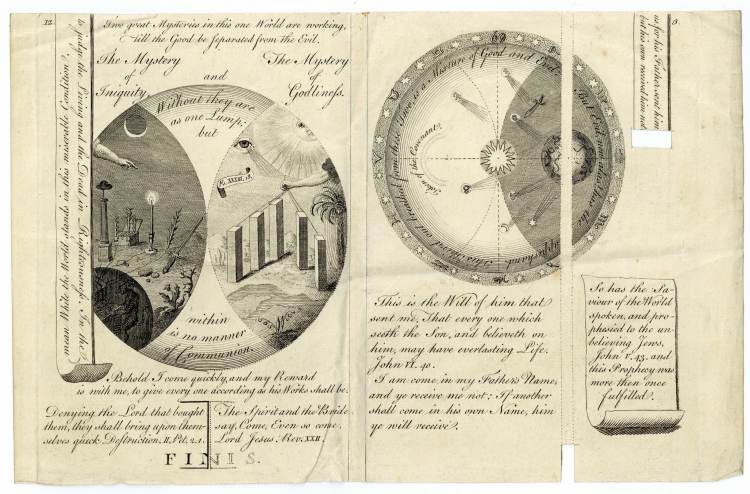One of the most exciting parts of working in an archive is opening up a newly donated box of material. There are almost always some interesting or odd items tucked in among the photographs, plans and papers which make up most of our collections.

A recent example was a collection of papers we received relating to the firm F T Wood and Sons of Birstwith Mill, Yorkshire. While most this consisted of correspondence and, financial details relating to the business of the mill, we also found these rather more unusual items.

They include a ‘certificate to kill game’, admission ticket for sheep dog trials to raise funds for the war effort, scorecard for an evening of ‘progressive whist’, ‘list of hall-marks on old London plate’, and a pharmacist’s prescription for ‘tincture of opium’ to treat ‘diarrhoea in adults’!

Even more unusual is the old engraving below, which turns out to be from a book entitled The Works of Jacob Behmen, the Teutonic Theosopher. Jakob Behmen, or Böhme (1575-1624) was a German Lutheran theologian and philosopher whose religious writings, inspired by alchemy and mystical visions, caused controversy in his day, as well as inspiring later writers such as Milton and Blake. Interest in Böhme in England owed much to William Law (1686-1761), a well known Anglican priest and author. Law became a great admirer of Böhme in his later years – sadly leading to a falling out with his friend the evangelist John Wesley, who compared Böhme’s writings to a ‘very shallow and dirty’ well. After Law’s death his friends published the English translation of Böhme in four volumes between 1764 and 1781, with illustrations by Dionysius Andreas Freher.

